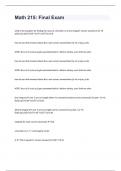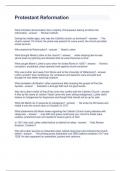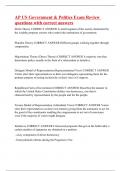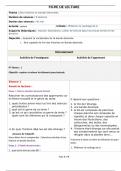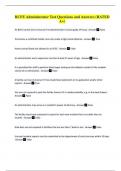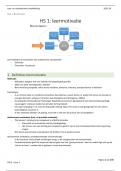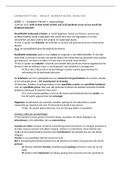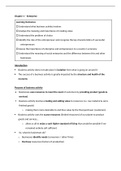The Prelude by William Wordsworth (P.21)
Narrative This is an autobiographical epic poem and in this extract the poet, William Wordsworth describes
skating on a frozen lake just as night is falling.
Contexts William Wordsworth was born and lived in the Lake District and this background greatly influenced
his writing and appreciation of nature. He was one of the first romantic poets. This extract is a part of
the first part of the poem, titled ‘Childhood’.
Themes Nature - The poem is set at Transition – Like the setting sun, Youth – Wordsworth
dusk, when the sun is setting, Wordsworth seems to mature over expresses the excitement of
and we see a sense of the course of the poem, moving away youth through the
melancholy overcome the from initial extreme excitement to a experience of skating on a
woodland. more sombre mood. frozen lake.
Literary Tautology is used to emphasise how significant Immediacy - Wordsworth describes these ordinary
Devices this event is the writer. Despite by declaring the events in an epic manner through the use of
time in the poem to be a “happy time... for all conjunctions from line 15 onwards. Listing
of us”, he goes onto say “to me it was a time description after description creates an immersive
of rapture”, which simply expands on this and immediate world for the reader, with so much
happiness. This creates an emphasis around the occurring at once. This creates a very dynamic and
central character, especially in relation to the not-at-all sentient course of events. Furthermore,
event. Furthermore, it makes the recount seem he uses a lot of embedded clauses such as “not
very personal and by doing this, all the more unnoticed” to the same effect, adding to the world
significant. with every addition.
Onomatopoeia – “tinkled” is an Sibilance – there is an instance of sibilance in the use of the verb
audible verb and replicates the “hiss’d” along the “polish’d ice”. Because of the repeated
sound of wind chimes. This assonance of the ‘s’ sound this forces the reader to hiss as they
helps to achieve the immersive, read it aloud. This is onomatopoeic and contributes further to the
reserved atmosphere. immersion of the cold, but not at all bleak setting.
Key “The alien sound of melancholy” highlights “And”, “indeed”, “so” and “meanwhile” are
Language that melancholy is somewhat unfamiliar to him. used to create a conversational tone in the extract.
By contrast, this aggrandises his youth and As well as being straight forward in its narration,
feeds into the idea of a gloriously happy youth, this creates the impression of immaturity to his
even in the season of winter – often depicted as writing, as if he was yet to blossom. This is done
a receptacle for sadness and the endings across to reflect that at this stage in his life, in childhood,
other romantic poetry such as Keats’. he was not quite fully-formed as a poet.
“The orange sky of evening died away” In describing “the distant hills” a sense of
effectively ends this extract as it is end stopped distance is contrived which helps to mark the shift
– the only instance of this throughout the poem. in mood towards the end of the poem. This deeply
This stop comes as somewhat jarring which contrasts the immediacy of his previous, intimate
only goes to solidify the line’s significance, descriptions of his surroundings. By distancing
signalling change was occurring and possibly himself as so, the setting no longer feels so
that his youth was nearing its end. familiar, reflecting how Wordsworth feels about
the “alien sound of melancholy”.
Form and This extract does not have separate stanzas and is written in blank verse. This allows it to adopt a
Meter more prosaic tone as it narrates the plot, creating a continuous sequence of events.
Structure The way the extract is one long sentence comprised of multiple clauses that could very well have
made different sentences, creates a prosaic flow. The extract being endstopped creates a sense of
finality to the event and through the poem’s connotations of growing up, the end of childhood.
Compare Death of the Naturalist by Seamus Heaney Afternoons by Phillip Larkin
s with…
Quotations to remember
And in the frosty season, when the sun … happy time
Was set… It was, indeed, for all of us; to me
It was a time of rapture
We hiss’d along the polish’d ice… The leafless trees, and every icy crag
Tinkled like iron…
while the distant hills
Into the tumult sent an alien sound
Of melancholy, not unnoticed, while the stars,
Eastward, were sparkling clear, and in the west
The orange sky of the evening died away.
Narrative This is an autobiographical epic poem and in this extract the poet, William Wordsworth describes
skating on a frozen lake just as night is falling.
Contexts William Wordsworth was born and lived in the Lake District and this background greatly influenced
his writing and appreciation of nature. He was one of the first romantic poets. This extract is a part of
the first part of the poem, titled ‘Childhood’.
Themes Nature - The poem is set at Transition – Like the setting sun, Youth – Wordsworth
dusk, when the sun is setting, Wordsworth seems to mature over expresses the excitement of
and we see a sense of the course of the poem, moving away youth through the
melancholy overcome the from initial extreme excitement to a experience of skating on a
woodland. more sombre mood. frozen lake.
Literary Tautology is used to emphasise how significant Immediacy - Wordsworth describes these ordinary
Devices this event is the writer. Despite by declaring the events in an epic manner through the use of
time in the poem to be a “happy time... for all conjunctions from line 15 onwards. Listing
of us”, he goes onto say “to me it was a time description after description creates an immersive
of rapture”, which simply expands on this and immediate world for the reader, with so much
happiness. This creates an emphasis around the occurring at once. This creates a very dynamic and
central character, especially in relation to the not-at-all sentient course of events. Furthermore,
event. Furthermore, it makes the recount seem he uses a lot of embedded clauses such as “not
very personal and by doing this, all the more unnoticed” to the same effect, adding to the world
significant. with every addition.
Onomatopoeia – “tinkled” is an Sibilance – there is an instance of sibilance in the use of the verb
audible verb and replicates the “hiss’d” along the “polish’d ice”. Because of the repeated
sound of wind chimes. This assonance of the ‘s’ sound this forces the reader to hiss as they
helps to achieve the immersive, read it aloud. This is onomatopoeic and contributes further to the
reserved atmosphere. immersion of the cold, but not at all bleak setting.
Key “The alien sound of melancholy” highlights “And”, “indeed”, “so” and “meanwhile” are
Language that melancholy is somewhat unfamiliar to him. used to create a conversational tone in the extract.
By contrast, this aggrandises his youth and As well as being straight forward in its narration,
feeds into the idea of a gloriously happy youth, this creates the impression of immaturity to his
even in the season of winter – often depicted as writing, as if he was yet to blossom. This is done
a receptacle for sadness and the endings across to reflect that at this stage in his life, in childhood,
other romantic poetry such as Keats’. he was not quite fully-formed as a poet.
“The orange sky of evening died away” In describing “the distant hills” a sense of
effectively ends this extract as it is end stopped distance is contrived which helps to mark the shift
– the only instance of this throughout the poem. in mood towards the end of the poem. This deeply
This stop comes as somewhat jarring which contrasts the immediacy of his previous, intimate
only goes to solidify the line’s significance, descriptions of his surroundings. By distancing
signalling change was occurring and possibly himself as so, the setting no longer feels so
that his youth was nearing its end. familiar, reflecting how Wordsworth feels about
the “alien sound of melancholy”.
Form and This extract does not have separate stanzas and is written in blank verse. This allows it to adopt a
Meter more prosaic tone as it narrates the plot, creating a continuous sequence of events.
Structure The way the extract is one long sentence comprised of multiple clauses that could very well have
made different sentences, creates a prosaic flow. The extract being endstopped creates a sense of
finality to the event and through the poem’s connotations of growing up, the end of childhood.
Compare Death of the Naturalist by Seamus Heaney Afternoons by Phillip Larkin
s with…
Quotations to remember
And in the frosty season, when the sun … happy time
Was set… It was, indeed, for all of us; to me
It was a time of rapture
We hiss’d along the polish’d ice… The leafless trees, and every icy crag
Tinkled like iron…
while the distant hills
Into the tumult sent an alien sound
Of melancholy, not unnoticed, while the stars,
Eastward, were sparkling clear, and in the west
The orange sky of the evening died away.


